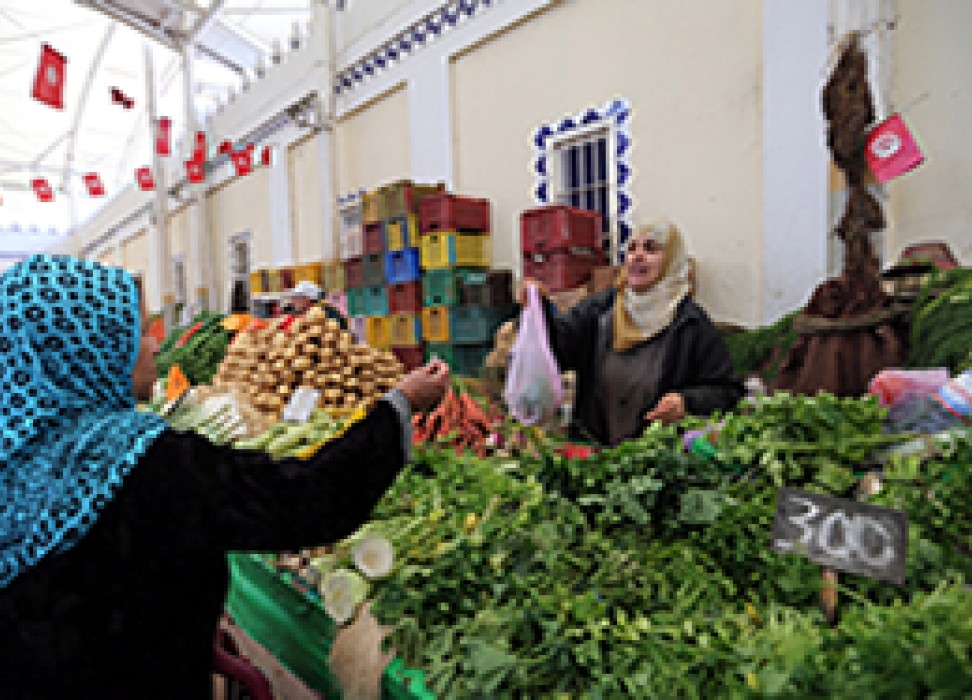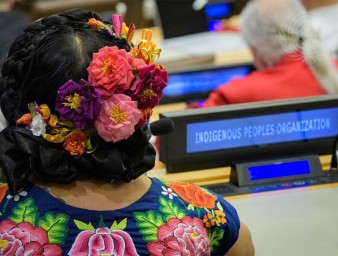In the search for justice, the whole truth must be told
10 July 2013

Two years on from the 2011 revolution, triggered by people’s demands for freedom and dignity, the Tunisian economy is struggling. The economy is estimated to have shrunk by as much as eight per cent and the unemployment rate is over 15 per cent.
Conditions for some businesses have become difficult because of actions taken to recover assets allegedly removed through corrupt or illegal practices. Restrictions, such as the freezing of assets and confiscation of passports, have been imposed as part of Tunisia’s transitional period.
The UN Human Rights Office in Tunisia recently organized a round-table discussion on “The role of the private sector in the democratic transition” to bring to the fore the responsibility of business in the transitional justice process.
Attended by international legal specialists and representatives of Tunisia’s government, civil society and business community, including the head of the country’s stock exchange, participants discussed the impact of the measures directed at those alleged to have profited unlawfully from their association with the previous regime and the potential impact of the current draft Transitional Justice Law on Tunisia’s economic prospects. They also examined the central issue of how to achieve justice for past economic crimes while promoting development and ensuring the business sector is involved in the transition to democracy.
Opening the discussion, Dimiter Chalev, Head of the UN Human Rights Office in Tunisia, acknowledged that while justice should be done for economic crimes, this must be achieved without stigmatizing business collectively and damaging the economic recovery. However, Chalev pointed out that protests against economic crimes and corruption, in particular, were at the heart of the revolution, expressed in calls for ‘dignity’. “Ignoring these social and economic demands,” he said, “would promise the failure of the transitional justice effort in Tunisia.”
“The UN Human Rights Office has always considered that violations of economic and social rights are as important as abuses of civil and political rights,” Chalev said. “If these are neglected as part of the transitional justice process, as has happened elsewhere, the whole process is likely to be derailed and further human rights violations are likely to occur.”
Chalev cautioned that accountability, a central plank of any transitional justice process, requires that individual responsibility for crimes must be established fairly. “The possibility for amnesty for economic crimes provided by the current draft law on transitional justice is problematic in this regard,” he said.
Sabina Michalowski, Professor of Law at the University of Essex in the United Kingdom, said to leave the role of corporations outside the transitional process is ill-advised for a number of reasons: a full account of what happened is not possible; reconciliation cannot be achieved; and it is difficult to prevent a repetition of conflict or a return of dictatorships.
Another of the speakers, Ruben Carranza, the Director of the Reparative Justice Program at New York’s International Center for Transitional Justice, brought to the discussion comparative experiences in other countries. In his presentation, Carranza pointed to the experience in the Philippines where two commissions were created after the fall of the Marcos dictatorship: one, which looked at violations of human rights and the other, at corruption and asset recovery.
Conference delegates participated in three workshops: the first examined how to achieve justice for past economic crimes without hindering development; the second looked at the economic crisis and asked how investor confidence could be restored; and a third addressed the recovery of frozen assets and corporate accountability for past abuses.
They made a number of recommendations, key among them that professional institutions should be represented on the committee, which has responsibility for tracking corporate abuses. They also proposed that international standards be adopted in the conduct of business and that stolen assets recovered by the State should be used to finance programs of the reparations fund, in particular, to promote development in marginalized governorates of Tunisia.
The UN Human Rights Office has been working in Tunisia at the invitation of the Government since July of 2011. The Office is contributing to reform efforts in Tunisia, through strengthening of the rule of law and promotion of policies, which support economic, social and cultural rights and which address inequalities and poverty.
10 July 2013

VIEW THIS PAGE IN:



